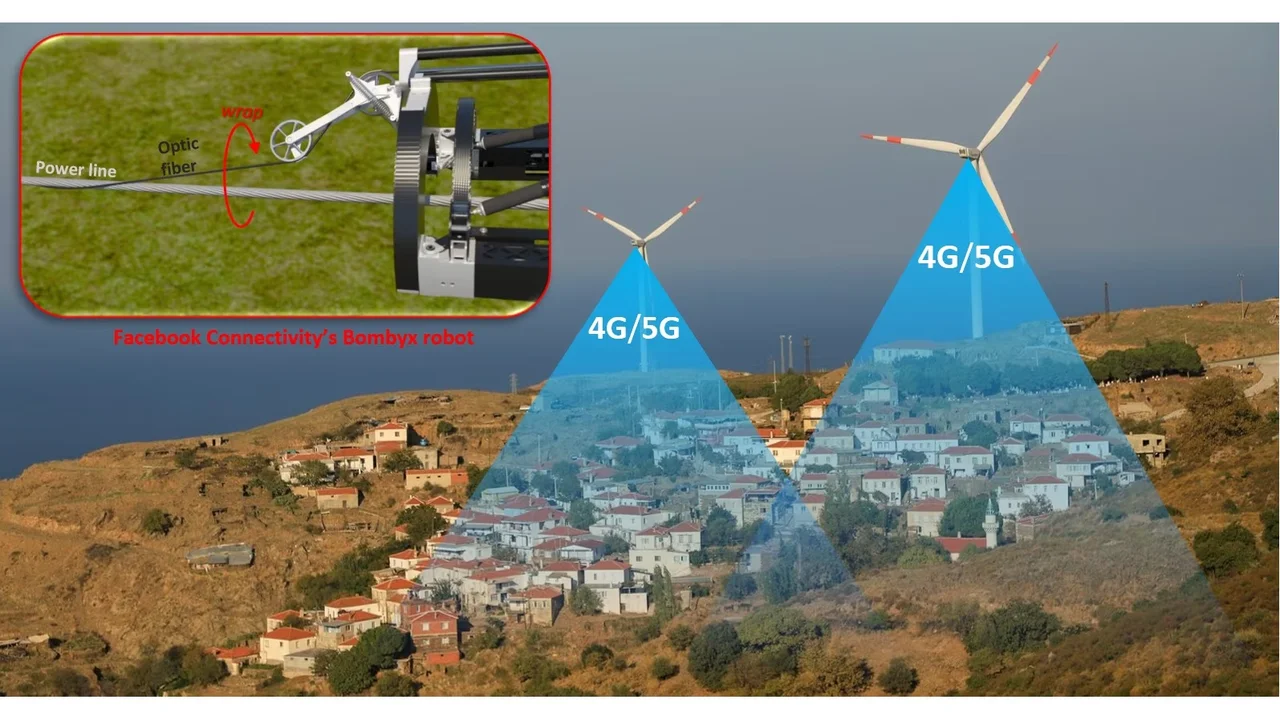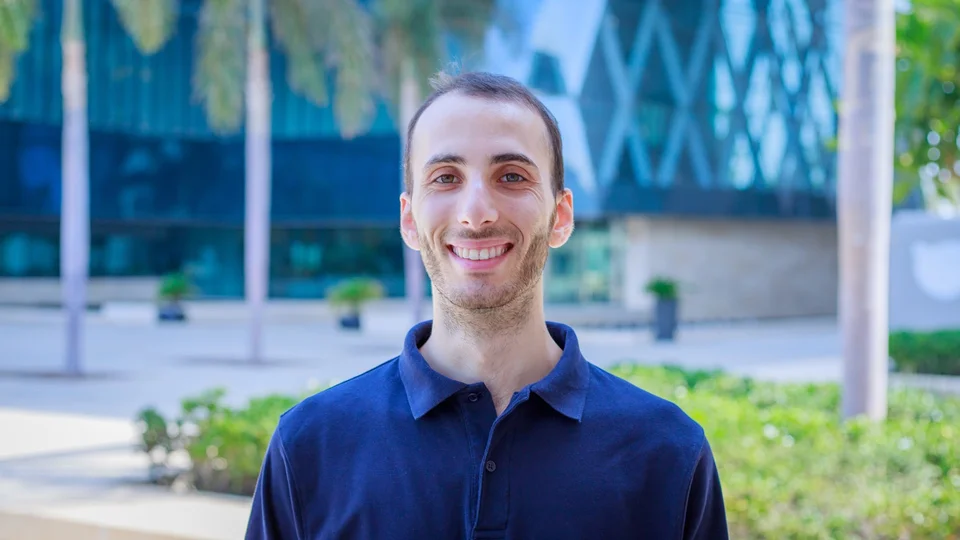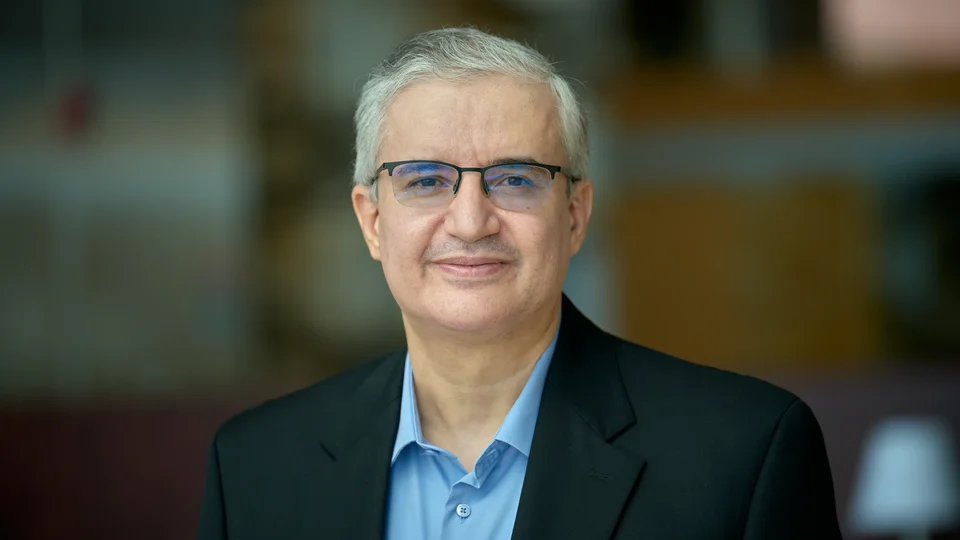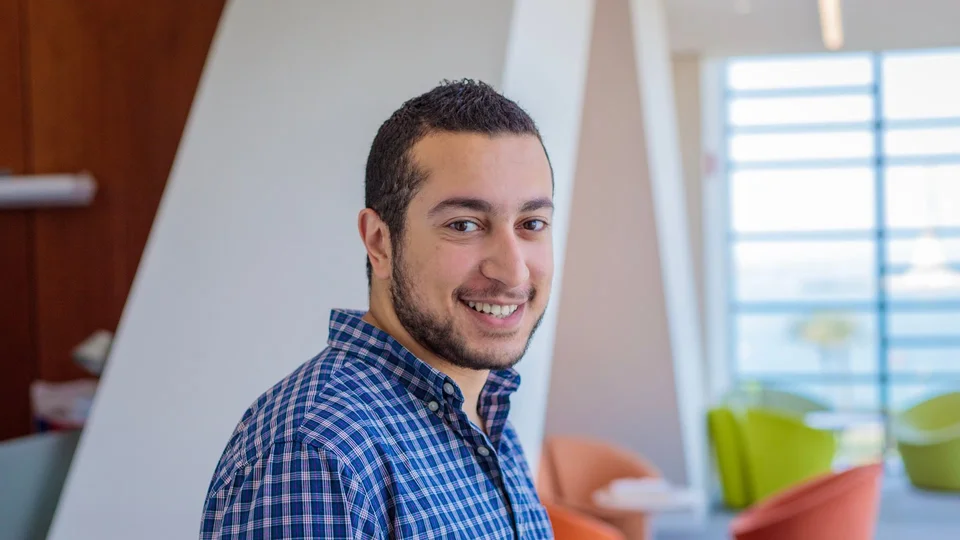
Progressive KAUST communications study awarded at the IEEE SusTech 2021 student poster contest
The progressive telecommunications research of KAUST Ph.D. candidate Maurilio Matracia, supervised by postdoctoral fellow Mustafa Kishk and Distinguished Professor of Electrical and Computer Engineering Mohamed-Slim Alouini, has been recently awarded the second-place prize at the IEEE SusTech 2021 student poster contest.
About
By David Murphy
The progressive telecommunications research of KAUST Ph.D. candidate Maurilio Matracia, supervised by postdoctoral fellow Mustafa Kishk and Distinguished Professor of Electrical and Computer Engineering Mohamed-Slim Alouini, has been recently awarded the second-place prize at the 9th IEEE Conference on Technologies for Sustainability (IEEE SusTech 2021) student poster contest.
The work, titled “Wind Turbine-Mounted Base Stations for Coverage Enhancement in Rural Areas,” investigated the use of wind turbine-mounted base stations (WTBSs) as a cost-effective solution for regions experiencing high wind energy potential but lacking adequate cellular coverage.
According to the results obtained, WTBSs have the potential to enhance and complement existing cellular infrastructures based on cell towers (CTs), satellites and aerial base stations. Moreover, the work highlights that installing base station equipment on wind generators would allow transceivers to reach sufficient altitudes and establish unobstructed sightlines between transmitting and receiving antennas (line-of-sight channels) within large areas.
“Novel affordable and sustainable paradigms are indispensable to enhance the cellular infrastructure in underdeveloped areas and bridge the digital divide when compared with urban centers,” Alouini emphasized.
“We also propose insightful simulation results for realistic case studies based on data sets for wind speed and population densities as well as wind turbines' and CTs' locations within specific real-world exurban regions. By doing this, we hope to prove the feasibility and the effectiveness of a WTBS solution and stimulate its implementation,” Matracia added.
“Eventually, our main objective is to propose a solution that helps to bring down the deployment cost of cellular infrastructure in rural and remote areas. We believe the proposed concept of infrastructure sharing will help with that purpose, and hence, give an extra motivation for cellular operators to invest in these typically overlooked geographical regions,” Kishk noted.
This recognition by the IEEE is one of a quick succession of personal accolades for Matracia, who also recently received the third-place award at the Falling Walls Lab 2021 at KAUST and, together with Kishk and Alouini, received acceptance for publication in IEEE Communications Magazine’s special issue on “Digital Divide.”


